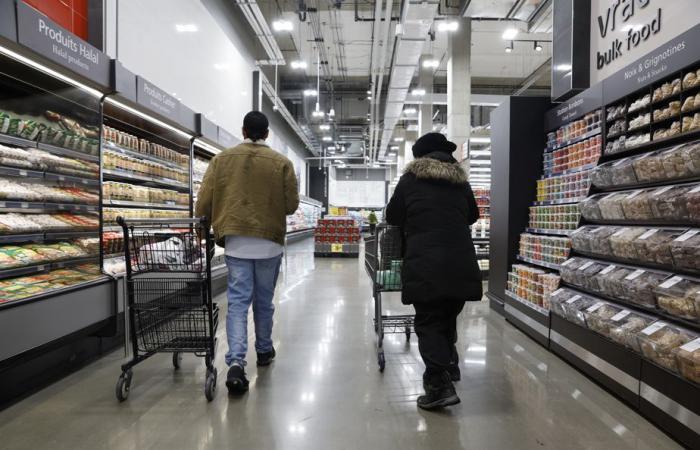Economists expect new data this week to reveal that inflation slowed further in December, paving the way for the Bank of Canada to continue cutting interest rates.
Posted at 9:18 a.m.
Rosa Saba
The Canadian Press
A Reuters poll shows economists expect the annual inflation rate to average 1.7% in December, down from November’s 1.9% rise.
But RBC predicts it will fall even more than that — to 1.5% — thanks to the federal government’s temporary GST break, as consumers spent less on a variety of items including food, restaurant meals, alcohol and children’s toys.
“We still think the overall macroeconomic backdrop and current consumer demand is just quite weak,” said Claire Fan, an economist at RBC.
RBC expects the rise to be largely driven by slowing food price growth, which will offset any rise in energy prices, economists Nathan Janzen and Abbey Xu wrote in a note Friday .
“The final Consumer Price Index report for 2024, released Tuesday, will be closely watched for further signs of easing underlying price pressures in Canada, but we expect the data is distorted by the GST holiday which began on December 14,” they wrote.
BMO, meanwhile, expects the headline CPI to be slightly above consensus, at 1.8%.
“There is a little more uncertainty than usual… as the tax change took effect in the middle of the month, so it will take two months to see the full impact, but it is possible that most of this one is felt from the start,” said BMO chief economist Doug Porter in a note Friday.
Other pressures, such as housing costs, which have consistently been a large contributor to rising inflation, are also easing, he said.
“Housing cost dynamics appear to continue to weaken, with gains in mortgage interest costs slowing. We will also be watching for any signs that the recent depreciation of the Canadian dollar is having an impact, particularly on fresh foods. »
TD expects headline CPI to rise 2% thanks to higher energy prices, as well as a slight acceleration in food and housing prices, wrote senior economist James Orlando, in an email. He estimates that the average of the Bank of Canada’s preferred core inflation rates — which exclude volatile items — will remain around 2.6%.
In November, the Bank of Canada’s preferred baseline measures of inflation remained stable at 2.6 and 2.7%.
-Even without the effects of the tax break, Mme Fan assured that the report will follow in the footsteps of recent data releases to show a continued downward trend.
“The general context […] is quite weak, it has already softened for quite a while,” she said. “That’s really going to show up, and continue to show up in the inflation data, regardless of some short-term fluctuations or disruptions caused by tax changes. »
Retail spending strengthened during the holidays, partly thanks to tax holidays, Claire Fan added.
She also expects more positive signs in the December report on the extent of inflationary pressures.
The Bank of Canada has lowered its key interest rate aggressively to ease pressure on the economy, most recently to 3.25%, now that inflation is stabilizing around its 2% target.
Mme Fan said the central bank is at this point more concerned with economic growth than inflation data.
After two larger half-point cuts last year, she said the central bank will likely turn to smaller cuts. Mme Fan expects the central bank to cut rates five times in a row this year, starting at the end of the month, until its policy rate stands at 2%.
“This will be necessary for conditions to begin to improve,” she explained.
However, potential U.S. tariffs could complicate matters, she said.
The tariffs are widely seen as inflationary for the United States, and experts have said they could in turn put inflationary pressure on Canada as well.
In a December note on the latest inflation report, TD senior economist Leslie Preston wrote that the bank expects headline inflation to slightly exceed the Bank of Canada’s 2% target in 2025, as tariffs increase the cost of goods, but not enough to deter the central bank from continuing to cut rates.
Doug Porter agreed in a report Friday that the central bank appears poised to continue cutting rates, despite the potential effects of tariffs.
“While the debate in the United States is about how much inflation tariffs can cause, the only question in Canada is what the negative impact on growth will be,” said the economist at BMO. “We continue to believe that the bank’s correct response to U.S. tariffs would be to reduce them early and often. »



